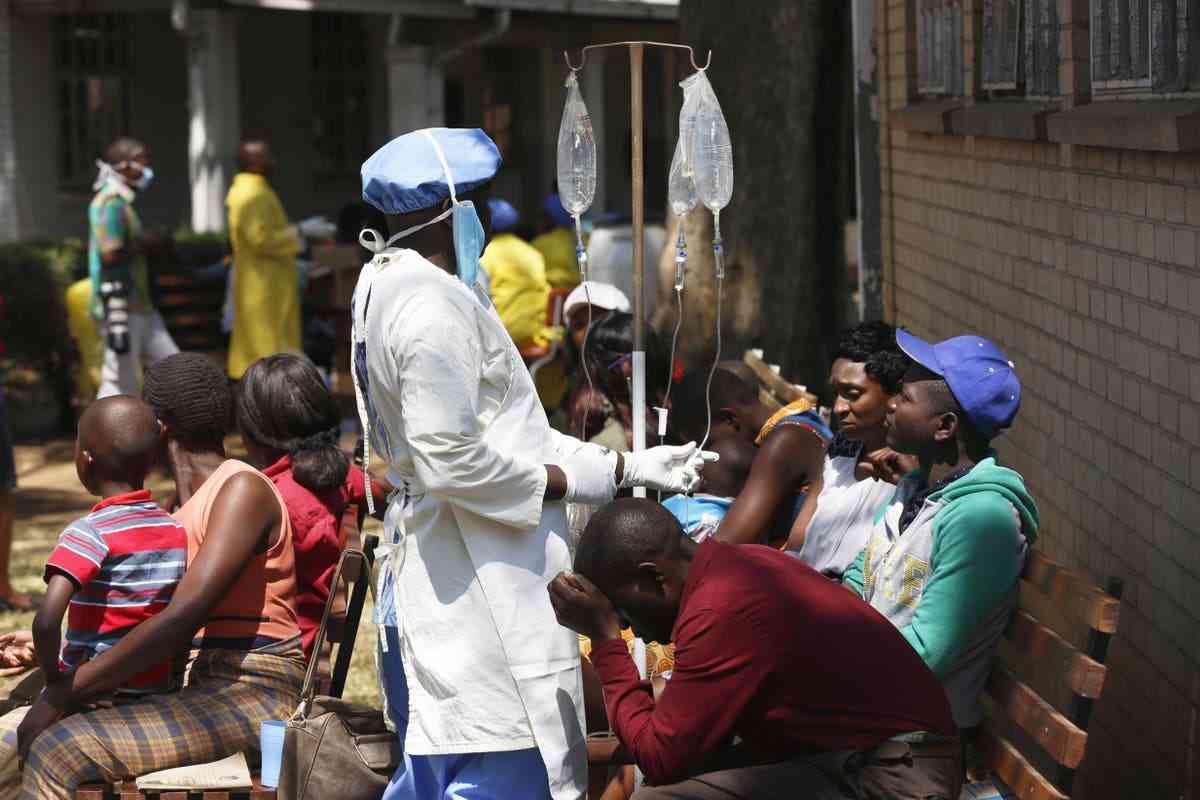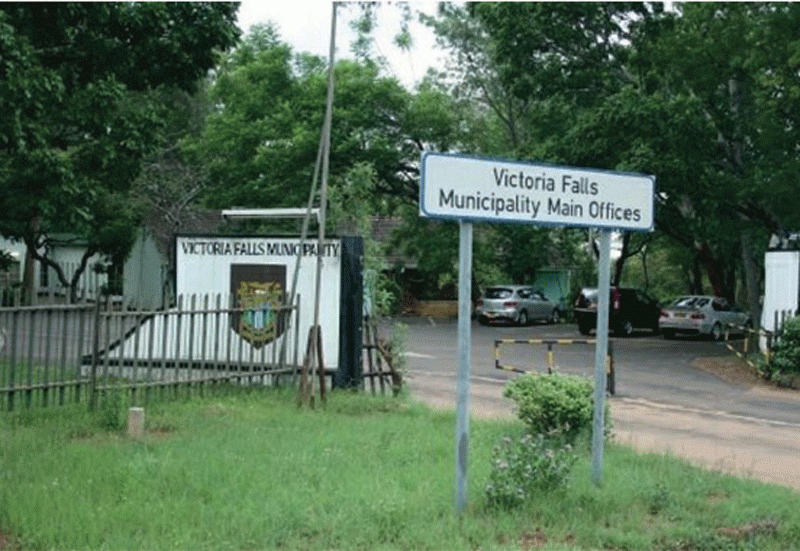
THE year 2023 is coming to a close with Zimbabwe grabbing international headlines over the cholera outbreak, a long forgotten medieval disease.
The first cholera case was recorded in Chegutu, Mashonaland West province, in February, and the disease has spread across the country, with 63 confirmed deaths and 219 suspected deaths by yesterday morning.
As of yesterday morning, 12 870 suspected cases including 1 605 culture confirmed cases had been reported in all the 10 provinces of the country.
The outbreak is not new to the country as Zimbabwe first experienced the traumatic effects of this medieval virus in 1972, though not much damage was experienced.
Since then, cholera is now endemic, especially in the capital, Harare.
The worst outbreak was between 2008 and 2009, where 98 585 cases and 4 287 deaths were recorded within a space of nine months.
Another outbreak was to follow in 2018, running for six months to 2019 claiming 69 lives while 10 421 people were infected.
Cholera is both a food and water-borne bacterial disease that is caused by vibrio cholerae, a toxin-producing bacterium and there are several factors that lead to the spread of the virus.
- Mavhunga puts DeMbare into Chibuku quarterfinals
- Bulls to charge into Zimbabwe gold stocks
- Ndiraya concerned as goals dry up
- Letters: How solar power is transforming African farms
Keep Reading
Medical and Dental Private Practitioners Association of Zimbabwe president Johannes Marisa said lack of funding of water infrastructure and proper sanitation was to blame for the recurrent outbreaks.
“There is no proper purification of water leading to simple waterborne diseases which are transmitted through contaminated water,” Marisa said.
“Financing is one of the building blocks of a society. If there is no financing, we are going nowhere as any failure in the governance system stalls development.”
Cholera complications can include severe dehydration, renal failure and can result in death.
Contamination of water bodies tends to be fatal and addressing issues of safe water and sanitation are cited as the important interventions to eradicating cholera.
Crowded cities and towns, especially Harare, are witnessing a high number of people using unprotected wells and boreholes.
Collapsing and poor sanitation infrastructure has been cited as one the leading factors causing raw sewage to flow in towns and cities, exposing residents to diseases.
Informal traders have also been blamed for fuelling the risk of cholera infection as they sell fruit and vegetables in open spaces.
According to health experts, there is a need for extensive garbage removal to avoid water pollution to prevent disease outbreaks.
Clean water should be available without fail if cholera is to be contained easily, they said.
They also said hand washing and sanitisation were key in cholera control, adding that there was a need to ensure that there was up-scaling of health education through various media platforms.
Contact tracing of cholera cases, including stocking of essential medicines which include antibiotics like Cotrimoxazole, intravenous drugs and fluids must be done in high volumes for hydration in case of serious illnesses, experts said.
Government, through a Cabinet directive, recently imposed a ban on vendors that prohibited them from selling in the central business district.
It gave the City of Harare a seven-day ultimatum to implement the ban.
However, the vendors ignored the ban.
Informal traders associations have denied allegations that their members are responsible for the spread of the virus.
They have instead demanded that the government puts in place measures and policies that do not compromise people’s livelihoods.
President Emmerson Mnangagwa and his Zanu PF party have maintained claims that opposition-led councils and informal traders are solely responsible for the spread of the diarrhoeal disease.
Writing in his weekly column in The Sunday Mail newspaper recently, Mnangagwa said towns and cities in Zimbabwe had been run down through gross maladministration by opposition-run local authorities.
Mnangagwa said without the drastic renovation of all local authorities, Zimbabwe would continue to suffer from preventable diseases such as cholera.
“Clean and safe drinking water is either unavailable or erratically supplied. Garbage collection services are largely dysfunctional, while broken sewers are a common sight, especially in our high-density suburbs,” he wrote.
“While water bodies can be provided to potentially meet clean water requirements for our cities, it has become apparent that such a goal remains a pie in the sky until our local authorities are properly and efficiently run.”
According to Mnangagwa, the solution to eliminating the waterborne disease is not only found in improved healthcare, but more in improving service delivery.
“In the absence of a drastic renovation of all our local authorities in the country, Zimbabwe will continue to suffer periodic outbreaks of preventable diseases, in spite of her many unused water bodies,” Mnangagwa said.
Harare Metropolitan Residents Forum chairperson Marvelous Kumalo said Mnangagwa should stop the blame game and work with councils to come up with long-lasting interventions.
“It’s a pity that instead of being a solution-holder, the President is playing a hide and seek game, blaming the opposition for the mess that we find most of our urban local authorities in at the moment,” Kumalo said.
“Indeed, poor service delivery, especially lack of access to clean, safe and potable water, as well as chaotic waste management standards, are behind the cholera epidemic. But blaming each other will not address anything.”
He urged central government to accept responsibility and take itself as part of the problem and come up with sustainable solutions to service delivery challenges facing communities.
“After all, local authorities are just sub-national governments that are part of the central government under the supervision of the President himself.”
Kumalo pointed out that the responsibility to create more water bodies lay in the hands of central government.
“The fact that the proposed Kunzvi and Muda dam construction failed to kick off is a case of misplaced priorities by the central government,” he said.
“The government allowed the population of Chitungwiza and greater Harare to continue to grow to millions of people while depending on the Morton Jaffray water plant, which was only installed to cater for a population of 300 000 people at most.
“On sewer system upgrades, the central government is supposed to provide funds to local authorities so that they match the rapid population growth, but the central government is not giving enough to these councils.”
Zimbabwe National Organisation of Associations and Residents Trust national chairperson Shepherd Chikomba said Mnangagwa should not turn urban areas into rural areas by drilling boreholes.
“We urge the government that instead of ruralising our urban cities by drilling boreholes in our suburbs, it should help in building better infrastructure for water. Boreholes should be drilled in rural areas. In cities and towns, we need running treated tap water,” he said.
“We want councillors to know that when one is voted or appointed into a public office, they cease to represent their political persuasions but all residents within their areas of jurisdiction.
Recently, the City of Harare attracted criticism for failing to deal with the cholera crisis.
During a water and sanitation symposium hosted by the Combined Harare Residents Trust recently, Harare officials admitted that they had failed on service delivery.
Residents associations have also accused the local authority of corruption as some of its employees have been accused of demanding bribes to fix burst sewers.
They also accused the local authority of holding luxurious and non-productive workshops in expensive resort towns in the midst of a crisis.










